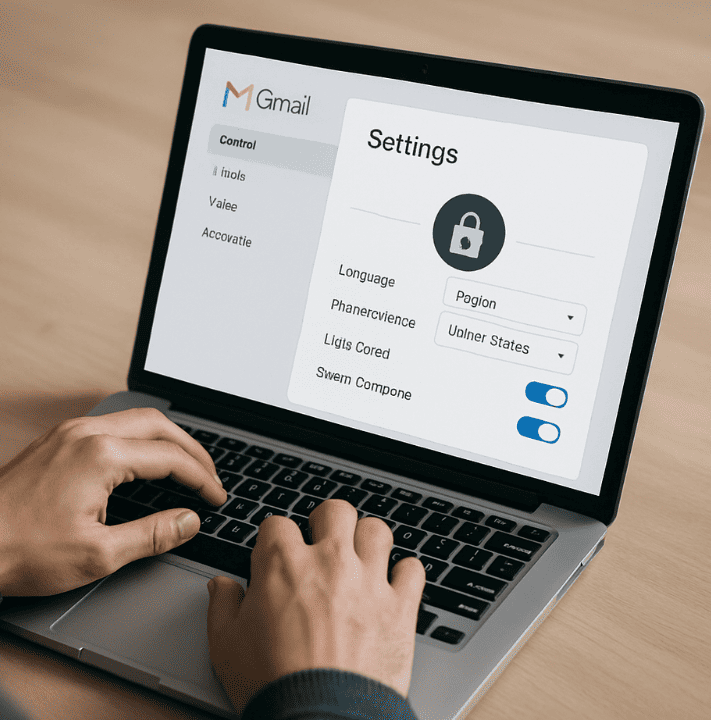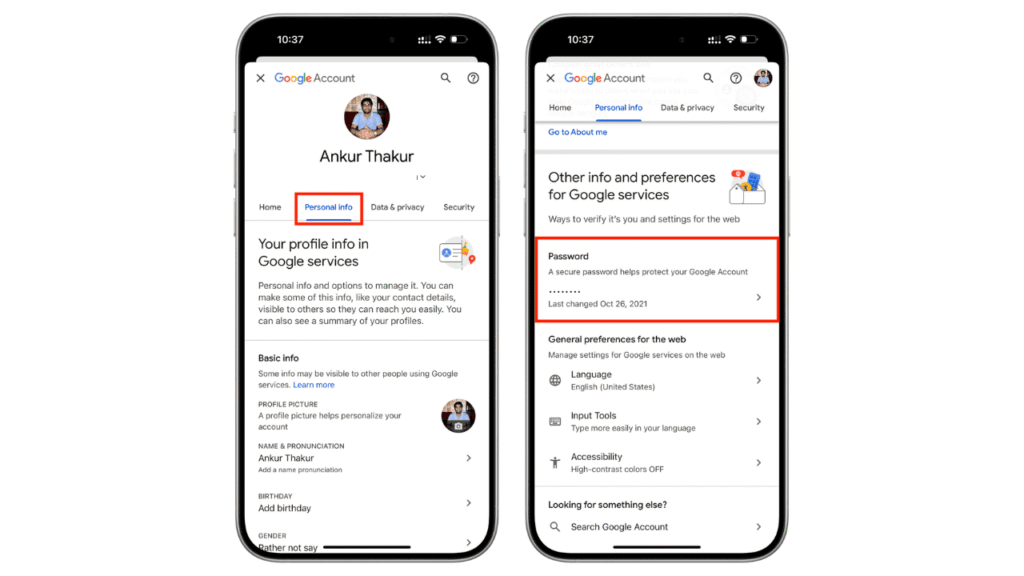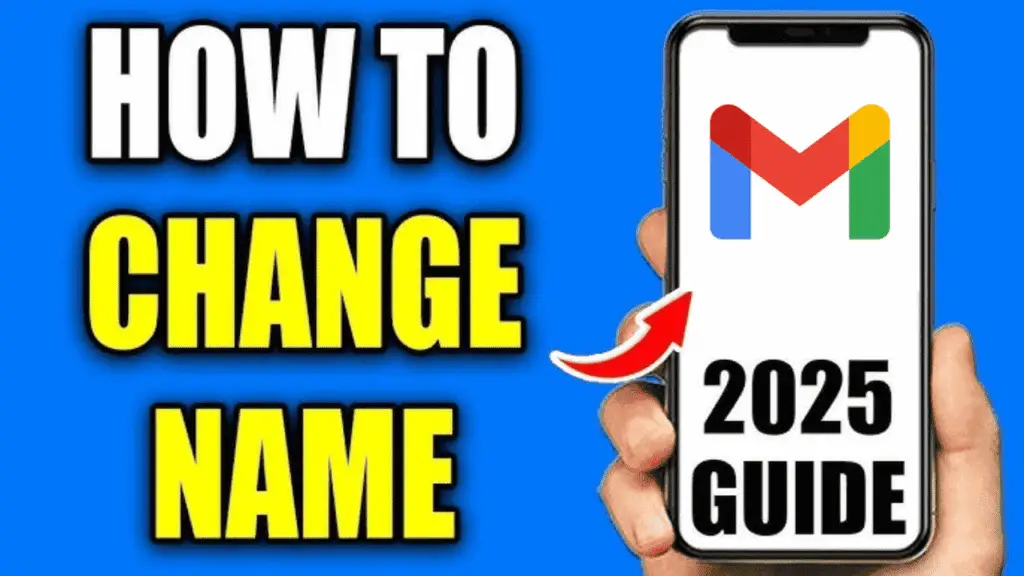How to change Gmail password: 7 Proven steps
Introduction
- Opening hook: With over 2 billion Gmail users facing increasing cyber threats—from massive breaches to growing phishing—understanding how to exchange your Gmail password is vital. (Cite Forbes, Life Wire).
- Promise: a full, step‑with the aid of‑step walkthrough, healing tips, safety great practices, and expert advice on passkeys and a pair of‑step verification.

Why Update Your Gmail Password Now
- Major June 2025 information leak: 16 billion credentials—such as Google—advised immediately password changes. (Cite news)
- Google recommends migrating to passkeys—biometric-enabled, phishing-resistant. (Cite Tom’s Guide, Downtown)
- Personal safety: Outdated or reused passwords are low-hanging fruit for hackers. Simple modifications matter.

Step‑by‑Step: How to change Gmail password
How to change Gmail password on Desktop
- Head to Gmail → gear icon → “View all settings” → Accounts and Import → Change password (Cite support.google).
- Enter current, then new strong password (8+ chars, mix of letters/numbers/symbols).
- What happens next: You’re signed out on most devices, except trusted ones (Cite support google).
How to change Gmail password on Mobile
- Android: Settings → Google → Manage your Google Account → Security → Password → re‑sign‑in → new pass → Change. (Cite Nordpass)
- iOS/iPad: Gmail app → profile → Manage → Personal info → Password → change. (Cite support.google)

Forgot Password? Recovery Tips
- Use Gmail Recovery Page: Email → “Try another way” → Options through phones, emails, safety questions. (Nordpass, citing google aid)
- Developer Tips: Check the spam, add noreply@…, wait a little.
- If there is no recovery option, go to the site’s Support.Google.
Boost Security: 2‑Step Verification & Passkeys
- 2SV: Able through safety → 2-phase verification → Choose SMS/App/Physical Key. Mandatory soon. (Quotes Tom Guide, Lifewire)
- Passkeys: Google’s new recommendation- Bio,- Based, device, Bound, Fishing, Profroof. (Quotes Forbes, Tom Guide)
- Add recovery options (backup code, alternative email, reliable equipment).
Below are some important Links:
- Google Support: 2-Step Verification
- FIDO Alliance: Passkeys Explained
- NordPass Blog: Password Manager Best Practices
What Happens After You Change
- Signed out of most sessions – sessions with new credentials.
- Do not use old device sessions/apps.
- If indicated, reconnect the third-party application and smart devices.
Best Practices for Strong Passwords
- Length + complexity → at least 12+ characters, variation.
- Avoid reuse: unique per site.
- Use password managers (e.g. NordPass) with zero‑knowledge encryption. (Cite Nordpass wiki)
- Regular audits—update passwords post-breach. (Cite arXiv)
When to Reset Password
- After security alerts (Google warning, data leak). (Cite Forbes, news)
- Suspicious logins.
- Routine updates—every 6‑12 months if no passkey.
FAQs: How to change Gmail password
Q1: Didn’t get the recovery email?
A: Check spam, filters, and resend.
Q2: Can’t change to the old password?
A: Not allowed—Google enforces no reuse.
Q3: Lost phone during setup?
A: Use backup email, codes, and contact support.
Q4: Why can’t I change my password to one I’ve used before?
A: Google enforces a no-password-reuse policy—you can’t reuse old passwords to ensure account security.
Q5: Why am I getting errors about too many reset attempts?
A: Google temporarily disables recovery options after repeated invalid attempts to deter abuse. Try a different method or wait until the lock expires.
Q6: How often should I update my Gmail password?
A: Best practice: update every 6–12 months, especially after data breaches or security alerts. Combine with 2-Step Verification or switch to passkeys for maximum protection.
Q7: Why am I locked out after too many reset attempts?
A: Google limits how often you can request recovery codes via email, SMS, or its form to prevent abuse. Exceeding these limits temporarily disables that method. You’ll either see a reactivation date or need to try a different recovery option at support.google.com. The best approach is to wait until the lock lifts or use a backup verification route.
Q8: Will I stay signed in everywhere after a password change?
A: When you change your password, Google signs you out of most sessions except trusted browsers/devices, third-party apps you’ve granted access to, and certain smart devices. Before changing your password, make sure you know which devices and apps you’ll need to re-authenticate afterward.
Q9: How often should I update my Gmail password?
A: If you’re not using passkeys or app-based security, the best practice is to update your password every 6 to 12 months, especially after data breaches, security alerts, or any suspected compromise. If you’ve enabled 2-Step Verification or passkeys, a change is only necessary after alerts or losses.
Conclusion
In today’s scenario, 16 billion Skyus touched cybertes like credentials. June 2025 – changing your Gmail password is not just a regular task, it is an important line of defense.
Google should actively go beyond its next stage password; its 1.8 billion Gmail users should be naked to adopt 2 2-phase verification and strong safety measures such as fish-resistant passes. Now, by updating your password and enabling these next-gen safety features, you reduce your risk, close your inboxes, and all connected services. This is a fast, effective step today that speaks to yesterday’s safety. Do not wait for an alert – now secure your account.
Also, you can visit below links:
How to change your Facebook Name:- Click Here
How to change your Instagram Name:- Click Here
Instagram bio generator:- Click Here
Instagram bio ideas:- Click Here

Pingback: How to change password on Chromebook in 4 simple steps - Toolebook
Pingback: Ultimate Guide: How to Change Signature in Outlook - 2025 - Toolebook